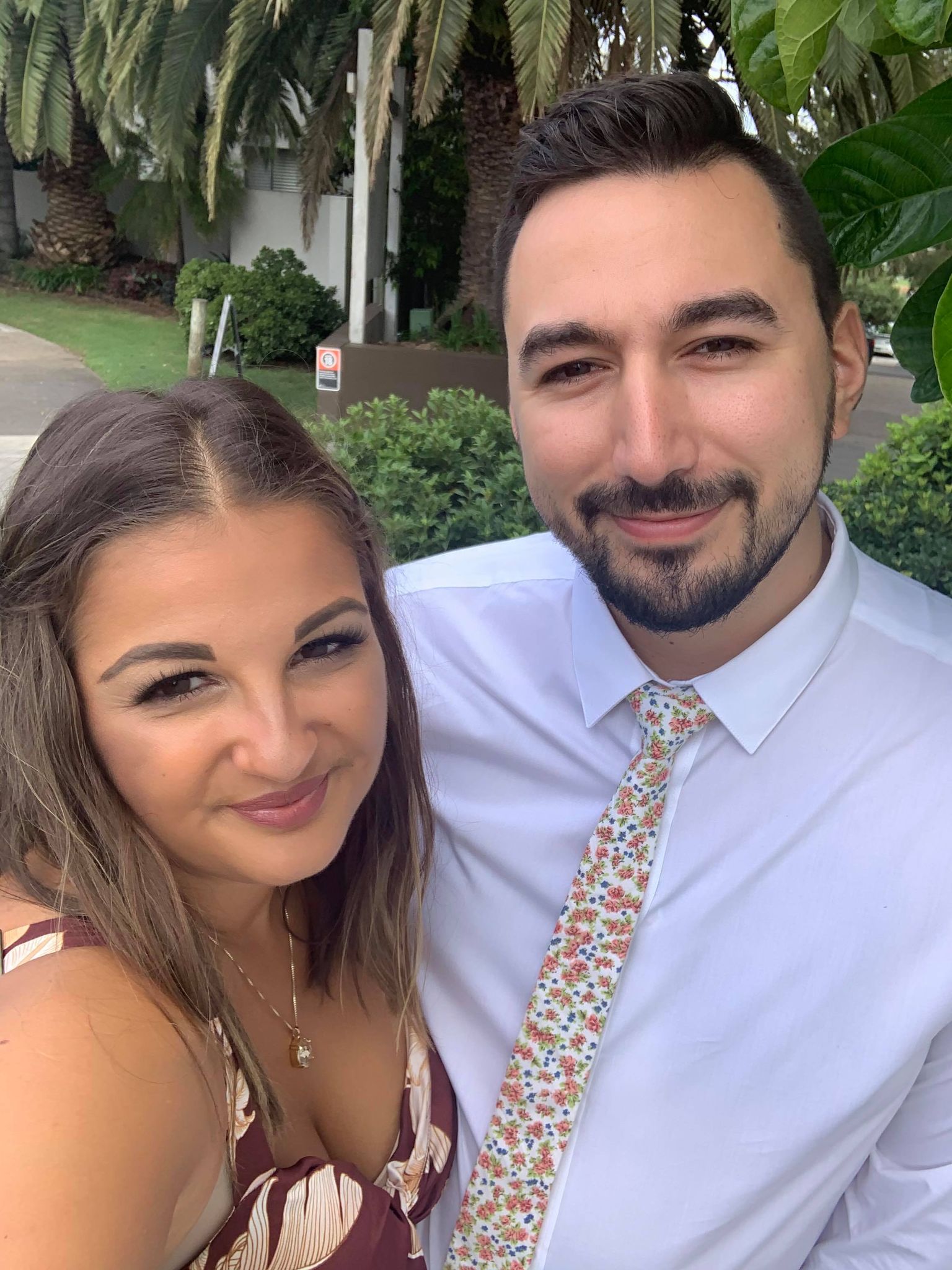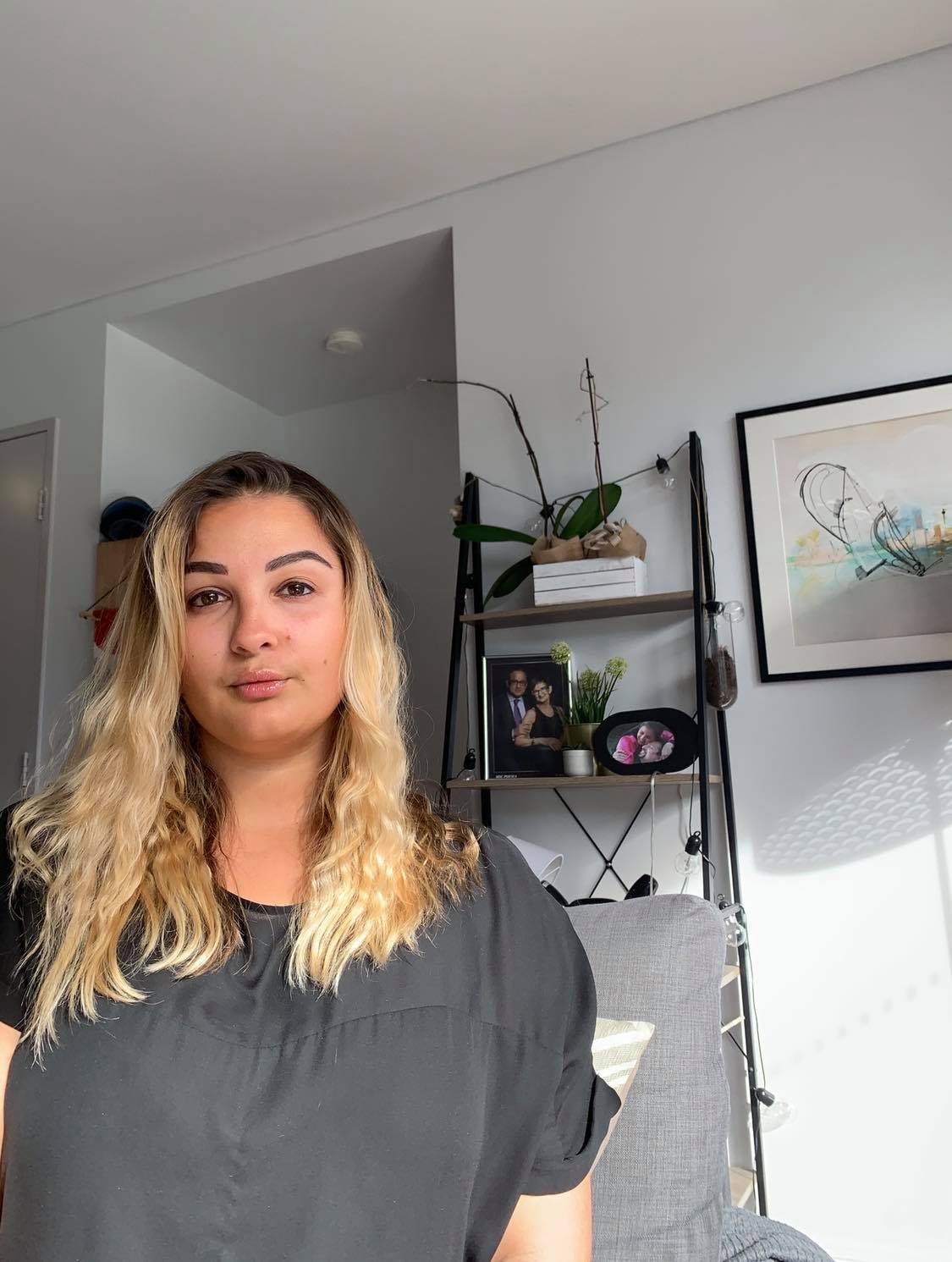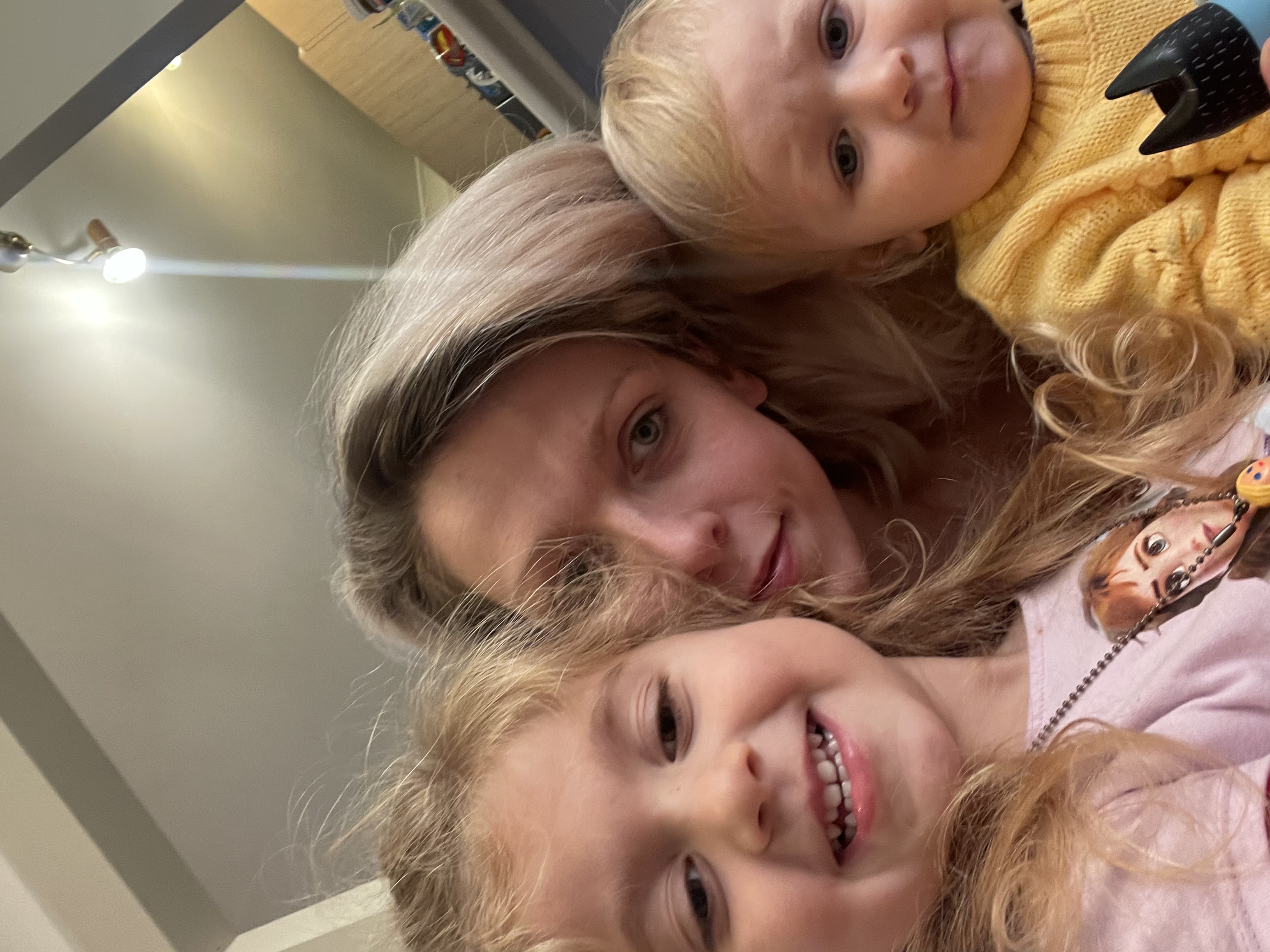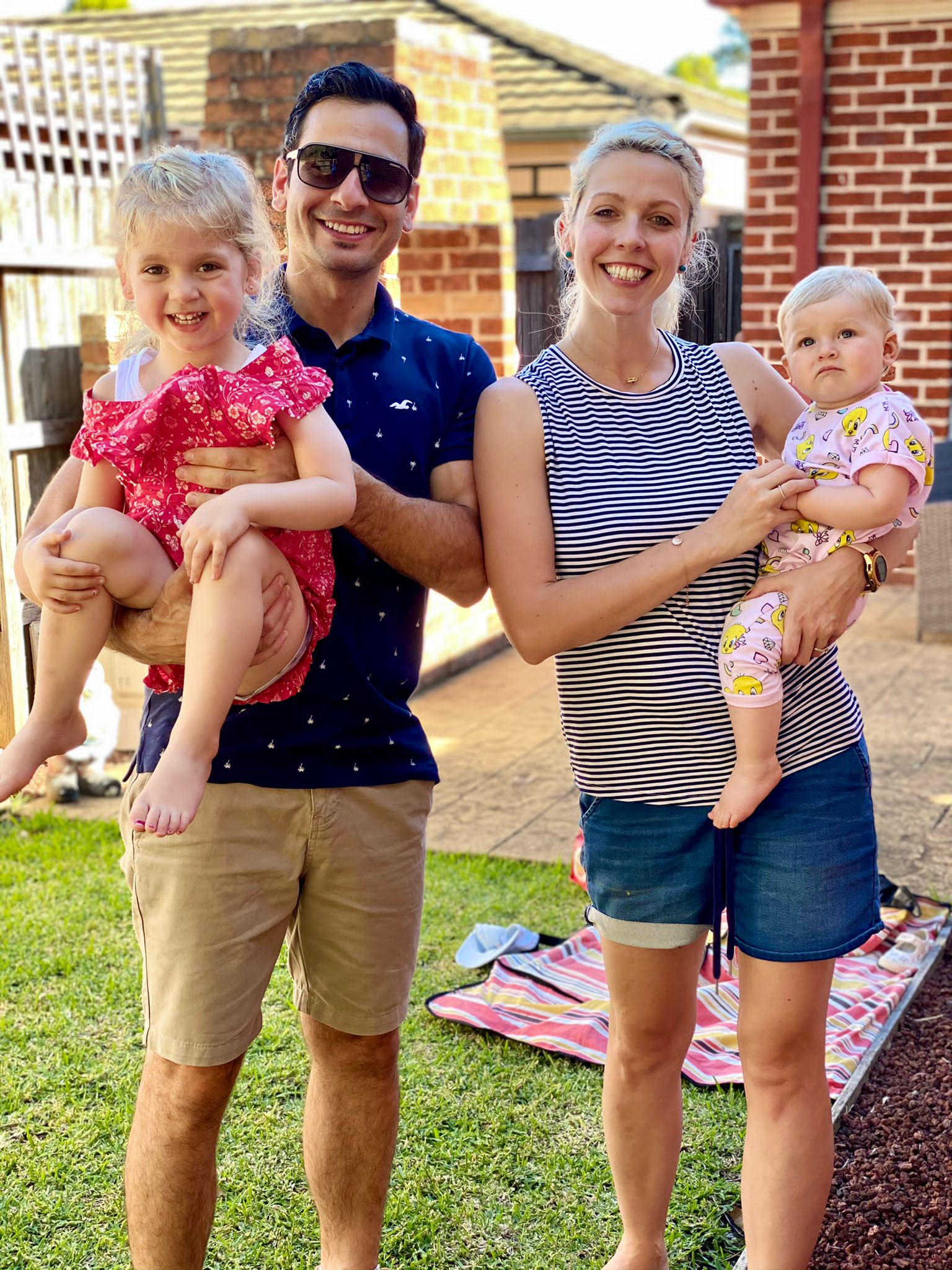Madde Pervaz and her partner Tim always wanted to have children relatively young. Their plan was clear and linear; get married in their 20s, enjoy some time together without children, then try for a baby.
But the plan didn’t accommodate a pandemic.
Originally from Sweden, 28-year-old Madde was planning her dream wedding on the NSW South Coast when COVID-19 hit. Now she doesn’t want it to go ahead if her family in Europe can’t attend.
Australia’s current border restrictions allow spouses, de facto partners, dependent children and legal guardians of Australian citizens and permanent residents to enter Australia, but not parents and other family members. “Everything has just changed because of COVID,” Madde told SBS News. “I don't want to get married without anyone in my family there, and because of that, I don’t know when we can start having kids either.”
“Everything has just changed because of COVID,” Madde told SBS News. “I don't want to get married without anyone in my family there, and because of that, I don’t know when we can start having kids either.”

Madde Pervaz and her husband Tim don't want to get married if Madde's family in Sweden are unable to attend. Source: Supplied
“It makes me quite teary. Not knowing is so hard.”
Even in non-COVID times, pregnancy and birth can be daunting. But during a pandemic, visiting the GP or hospital for antenatal check-ups and to give birth carries new risks. In times of outbreaks, visits to postnatal wards are severely limited, as are household guests, meaning new mothers can be more isolated and less supported.
For migrant women unable to see their families at such a vulnerable time, it’s especially hard.
Like many women, Madde isn’t keen on having children without parental help at hand.
“I don't want to be pregnant without being able to have my parents here or be able to be with them," she said.
To add to the pressure, a few weeks ago Madde learned she may also require fertility support to conceive. “It's hard because ideally, we wouldn’t want to wait too long but we don’t know where the end of this pandemic is, particularly in Sydney. There’s no clarity when borders will open," she said.
“It's hard because ideally, we wouldn’t want to wait too long but we don’t know where the end of this pandemic is, particularly in Sydney. There’s no clarity when borders will open," she said.

Madde Pervaz says the pandemic has interrupted her plans to start a family. Source: Supplied
“I've always been very mindful of the fact that there’s no guarantee around having kids, but now I feel really anxious. I’ve been told that it’s going to be difficult, so time is even more of the essence."
"Everything is just out of our control."
Delaying parenthood
Madde is one of many women in Australia whose plans for a family have been impacted by COVID-19, according to recent research.
The Australian Institute of Family Studies found one in five Australian women have changed their plans of having children because of the pandemic, and one in seven women indicated that COVID-19 likely impacted when they would have children, with the majority of this cohort (92 per cent) choosing to delay having children.
The Families in Australia: Towards COVID Normal study, which was released last month and involved more than 3,000 participants, also found more than one in 10 women surveyed had been trying for a first or additional child before the pandemic, but 18 per cent had ceased trying to conceive at least partly because of the pandemic.
Lead researcher on the study Dr Lixia Qu said it's not surprising women’s attitudes towards pregnancy and fertility have been impacted by the crisis.
“The COVID-19 pandemic brought on a lot of uncertainty, so it makes sense that some women have reshaped their views about having children,” she said.
Financial insecurity has also played a significant role in women’s decisions around conceiving, the study found, with 62 per cent of respondents who had stopped trying to conceive during the pandemic having suffered employment loss.
Anika Saad, who lives in southwest Sydney, is one of them. Anika and her husband Sam have two daughters aged four and one. They had always planned on having a third child until Sam, an international pilot, lost his job.
“He’s been on leave without pay for 18 months now with no end in sight, and after six months of using our savings, it’s pretty much gone,” Anika, 32, said. “If that keeps going for a few more months, we’ll have to sell the house.” While Sam has managed to find some casual work, Anika said potential employers are turned off by his work history, believing he will return to flying as soon as he’s able to.
While Sam has managed to find some casual work, Anika said potential employers are turned off by his work history, believing he will return to flying as soon as he’s able to.

Anika Saad and her husband Sam always wanted to have a third child before the COVID-19 pandemic decimated their savings. Source: Supplied
Anika said she will look for a customer service role later in the year but the cost of childcare for two children will absorb most of her salary.
“We don’t feel we can bring a third child into all this. While they don’t cost too much money as babies, they do when they grow up," she said.
“We’re not sure we can afford a third child now.” As well as taking a toll on their finances, the pandemic has also affected Anika's relationship with Sam, and her mental health, she said.
As well as taking a toll on their finances, the pandemic has also affected Anika's relationship with Sam, and her mental health, she said.

Anika and Sam always planned to have three children, until the COVID-19 pandemic caused Sam to lose his job as a pilot. Source: Supplied
Her family in Germany have been unable to visit them and offer help, which also turns her off having another child.
“Since the start of the pandemic, we have had no help with the girls, no break. It’s been heavy on our relationship.”
“We just can’t find time for each other, it’s been quite sad."
“I’ve been more angry, more anxious and more stressed. My husband has felt guilty for not being able to provide for us. To have another baby we would have to make sure we are financially and mentally stable.”
Anika also fears she may have to homeschool her oldest child when she starts school next year, which is a load she finds impossible to fathom if she also had both a toddler and a newborn to care for without parental support.
“We are halfway through 2021 with just no end in sight,” she said. “We know we’re lucky to have two healthy kids, but we’ve always wanted a third child. It’s really sad to think about it, to think this is it for us.”
'I'd love to be pregnant'
Sydney-based Giulia (not her real name) said she would love to be pregnant, but the pandemic got in the way.
The 32-year-old and her husband welcomed their first child in September 2020 and had originally planned to have another quite quickly so their children could grow up together. But Giulia lost her job in travel and tourism and the international borders closed in March 2020 when she was six months pregnant. Suddenly, she wasn’t able to go to Italy to see her family without an exemption and her parents were unable to come over.
Overnight, her plans to have parents involved in the pregnancy, birth and early months of her son’s life were dashed.
“My parents weren't able to come to help, support and to meet their first grandchild,” she said.
“My parents deserve to meet their first grandchild on his own, he deserves to be spoiled and loved as the first one and the little one. I don't feel it'd be fair to put them through it a second time.”
Giulia is unsure if she can handle another pregnancy and newborn stage without her parents’ help. She will need to give birth via C-section and she doesn’t feel she could cope with the recovery with her husband only having two weeks’ paternity leave and having a toddler to care for without her mother’s help.
“I would physically and mentally need my parents to have a second child," she said. "My baby is now 10 months and I’d love to be pregnant. If the situation was different I would be and my boy would have a little sibling on the way.
“This makes me feel very sad and upset. The pandemic changed our plan, changed what were my dreams for my family. It makes me doubt every decision I made and I'm making, from the one to make Australia my home to the one to have a family in the first place, which makes me feel sad and afraid.”
Madde and Tim have decided to make a big life change if the borders don't open next year. When it comes to starting a family, time isn’t on their side.
“We’re going to start planning a move to England, where Tim has family and which is close to my family,” Madde said.
“In my heart, if I would have known 10 years ago when I came to Australia that I wouldn't be able to see my family when I wanted, I probably would never have left Sweden."
The couple said they would prefer to stay in Australia where they are settled and have jobs, but family ties are too important.
“If things don’t change and if they're not going to open up the borders, then we're just going to leave Australia to get married and have a baby.”
Readers seeking support with mental health can contact Beyond Blue on 1300 22 4636. More information is available at . supports people from culturally and linguistically diverse backgrounds.





